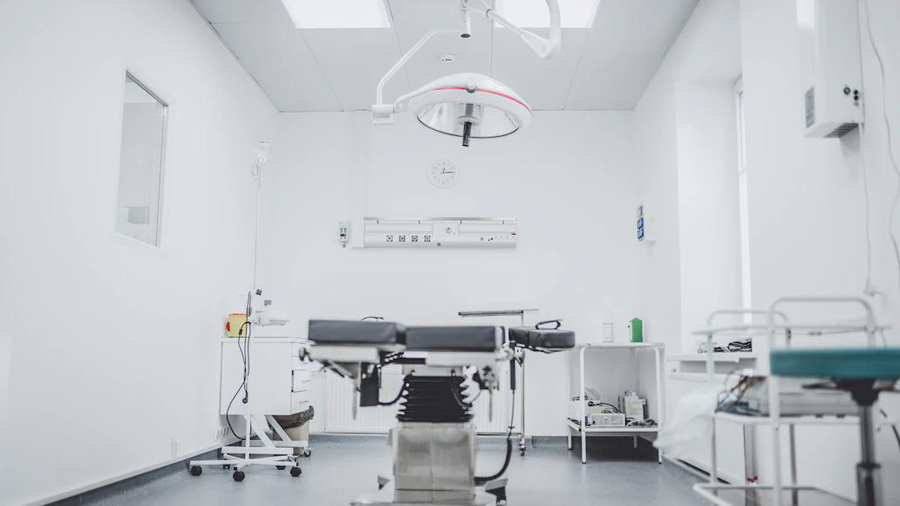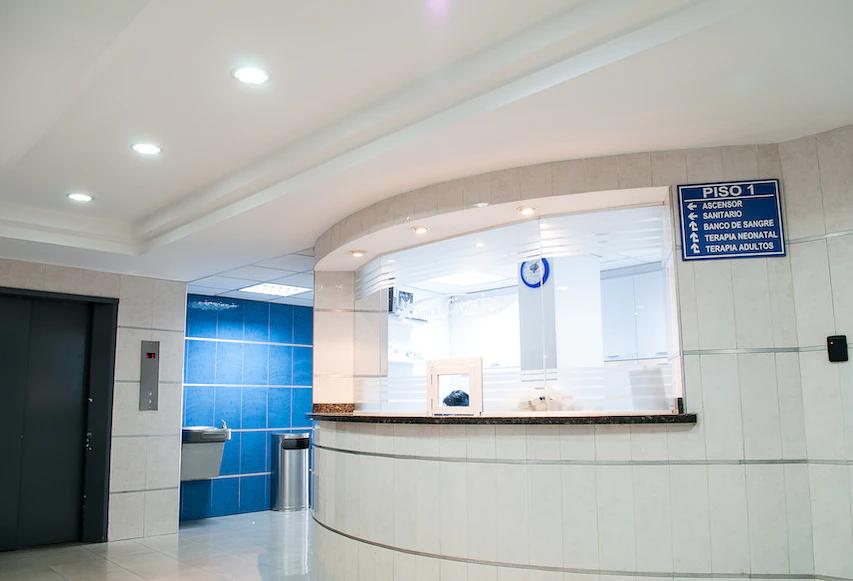From integrating an effective medical answering service to addressing the needs of a patient and everything in between, there seems to be no limit to what healthcare facilities can do to make their clients happy.
Excellent customer service is critical in all industries, but maybe, none more than in healthcare. Medical practitioners take care of clients when they are at their most vulnerable. Many would assume that great customer service in a healthcare facility is all about the quality of medical care offered by competent practitioners. While this is critical, customer service goes beyond treatment. It’s the little things like the caregiver’s availability when the patients need them most or the reception and care that a patient gets among other things that count.
Customer care in Customer service in healthcare services is important because it can greatly affect patient satisfaction and loyalty. Good customer service in healthcare involves being courteous, respectful, and attentive to the needs of patients. It also consists being responsive to patient inquiries and concerns and providing clear and accurate information. By prioritizing customer service, healthcare providers can create a positive patient experience and improve the overall quality of care.
Good customer care starts when a patient calls in to book an appointment, inquire about the services, or report an emergency. Things like having to wait on the line for several minutes, not getting a response, talking to an underwhelmed or overwhelmed secretary and so on can be a complete turn off to patients. Again, since these calls can happen at any time, including after-hours, and over the weekends or holidays, it is easy for facilities to miss out. Outsourcing medical practice answering service is an excellent way for healthcare organizations to ensure they never miss a call, and that patients are taken care of promptly and professionally.
The Benefits of Using a Healthcare Answering Service
- Improved patient accessibility:One of the primary advantages of using a healthcare answering service is that it allows patients to reach a live person outside regular office hours. This can be especially important for patients with pressing medical concerns or those who cannot visit the practice during normal business hours. By providing a way for patients to reach the practice at all times, a healthcare answering service can help improve patient satisfaction and reduce frustration.
- Enhanced patient satisfaction: In addition to improving patient accessibility, a healthcare answering service can also enhance patient satisfaction by providing timely and professional responses to inquiries. Whether a patient is calling to schedule an appointment, ask a question about their treatment, or request a prescription refill, a healthcare answering service can ensure that their needs are promptly and efficiently addressed.
- Increased practice efficiency: By handling routine calls and inquiries, a healthcare answering service can free up staff time to focus on more pressing tasks, increasing the overall efficiency of the practice. This can be especially beneficial for short-staffed courses or dealing with a high volume of calls.
- Improved patient communication:A healthcare answering service can also play a key role in improving patient communication by ensuring that important information, such as appointment reminders and test results, is relayed to patients promptly and efficiently. This can help improve patient satisfaction by reducing the likelihood of missed appointments or misunderstandings about treatment plans.
- Cost savings:In addition to improving patient satisfaction, a healthcare answering service can also lead to cost savings for the practice. By handling calls outside of regular office hours, healthcare answering services can help reduce the need for additional staffing, potentially leading to cost savings for the practice.
How do Healthcare Answering Services Improve Patient Satisfaction?
Healthcare answering services can improve patient satisfaction and more efficient and effective healthcare practices. Healthcare answering services can significantly improve patient satisfaction by providing enhanced accessibility and timely responses to patient inquiries. With a healthcare answering service in place, patients can reach a live person outside regular office hours, reducing frustration and increasing the likelihood of receiving the care they need. In addition, a healthcare answering service can provide timely and professional responses to patient inquiries, further enhancing patient satisfaction. By handling routine calls and questions, a healthcare answering service can also increase the overall efficiency of the practice, freeing up staff time to focus on more pressing tasks.
The Role of Healthcare Answering Services in Reducing Wait Times and Increasing Efficiency
- Reducing Wait Times for Patients: One of the primary benefits of using a healthcare answering service is significantly reducing patient wait times. With a healthcare answering service in place, patients can reach a live person outside of regular office hours, allowing them to get the care they need when needed. This can be especially beneficial for patients with pressing medical concerns or those who cannot visit the practice during normal business hours.
- Increasing Practice Efficiency: In addition to reducing wait times, a healthcare answering service can also help increase the overall efficiency of the practice. By handling routine calls and inquiries, a healthcare answering service can free up staff time to focus on more pressing tasks, increasing the overall efficiency of the practice. This can be especially beneficial for short-staffed courses or dealing with a high volume of calls.
- Providing Automatic Appointment Reminders:One key way healthcare answering services can help increase efficiency is by providing automatic appointment reminders to patients. This can help reduce the number of missed appointments, which can be a significant drain on practice resources. By automatically reminding patients of their appointments, a healthcare answering service can help increase the utilization of available appointment slots, resulting in increased efficiency for the practice.
- Streamlining Prescription Refill Requests:Healthcare answering services can help increase efficiency by providing support for prescription refill requests. By allowing patients to request refills over the phone or online, a healthcare answering service can help streamline the refill process, reducing the need for patients to visit the practice in person. This can save patients and practice staff time, resulting in increased efficiency.
Choosing the Right Healthcare Answering Service for Your Practice
- Experience:Look for a healthcare answering service that has experience working with medical practices and is familiar with the healthcare industry’s unique needs. This will ensure that the provider can effectively handle the specific needs of your practice and provide the level of service that you and your patients expect.
- Customization:Choose a healthcare answering service that can tailor its services to the specific needs of your practice. This may include after-hours coverage, appointment scheduling, and prescription refill requests. By selecting a provider that can offer customized services, you’ll be better able to ensure that your needs are met and that your patients receive the care they need.
- Technology:Consider a healthcare answering service that utilizes modern technology, such as cloud-based systems and mobile apps, to facilitate communication and improve efficiency. These tools can make it easier for patients and practice staff to access and use the service, resulting in a better overall experience.
- Security:It’s essential to choose a healthcare answering service that takes the privacy and security of patient information seriously. Look for a HIPAA-compliant provider with robust security measures in place to protect patient data. This will help ensure that patient information is kept confidential and secure, essential for maintaining patient trust and satisfaction.
- Cost:Be sure to consider the cost of the healthcare answering service when making your decision. Look for a provider that offers competitive pricing and fits your budget. Keep in mind that while it’s important to consider cost, it’s also important to ensure that you’re getting a high-quality service that meets the needs of your practice and your patients.
Implementing a Healthcare Answering Service in Your Practice: Best Practices and Considerations
- Clearly define the roles and responsibilities of the healthcare answering service:It’s important to clearly understand what the answering service will be responsible for and any limitations on their role. This will help ensure that there is no confusion about the services being provided and will help ensure that the service can effectively meet the needs of your practice.
- Establish protocols for handling emergencies:It’s important to establish protocols for handling emergencies, such as how to transfer calls to on-call staff or how to direct patients to the nearest emergency room. This will help ensure that patients receive the care they need promptly.
- Train staff on how to use the service:It’s essential to ensure that practice staff is familiar with the healthcare answering service and comfortable with its capabilities. Providing training and ongoing support will help ensure that the service is being used effectively and that staff can utilize it to its full potential.
- Set clear expectations for patient communication:It’s important to set clear expectations for patient communication, including what types of inquiries can be handled by the answering service and what should be referred to practice staff. This will help ensure that patients receive the care they need and that the practice staff can focus on more pressing tasks.
- Monitor and assess the service regularly:It’s important to monitor and evaluate the performance of the healthcare answering service to ensure that it meets the needs of your practice and your patients. This may include tracking metrics such as call volume, wait times, and patient satisfaction. By regularly monitoring and assessing the service, you’ll be able to identify any areas that may need improvement and make adjustments as needed.
- Communicate with the service provider:Establishing clear lines of communication with the service provider is essential to the service’s success. Regularly checking in with the provider and providing feedback will help ensure that the service meets your needs and that any issues are addressed promptly.
- Consider the needs of your patients: When implementing a healthcare answering service, it’s important to consider the needs of your patients. This may include language preferences, accessibility needs, and cultural considerations. By taking the needs of your patients into account, you’ll be able to ensure that the service can effectively meet their needs and improve their overall satisfaction with the care they receive. Some also provide TTY or IP Relay service for hearing-impaired patients.
So, why is customer service valuable in healthcare?
It sets the expectation for the quality of care: as stated earlier, quality treatment is critical, but it’s not everything. When a patient calls in and gets a cold treatment, they are likely to hang up and call the next best option because they assume that that’s a reflection of the care they will receive from the facility. The opposite is true.
It creates a loyal fan base: a satisfied patient is a happy client, and is more likely to go back (and even refer people) to the facility than one who is unhappy. The reputation that a facility develops for poor or exceptional customer service will be vital in determining whether potential patients seek their services in the future.
Bad customer care reflects bigger issues: poor customer service is often an indicator of underlying problems within the facility. Hospitals that deliver excellent customer service are likely to have refined and robust systems and processes, while those that offer poor service are likely to struggle with data quality, staff training, and process inefficiencies.
Patients are customers: many healthcare organizations tend to forget this aspect. Without a patient, there would be no business. The only difference is that patients do not want to be in the hospitals – it is scary, confusing, and sometimes, stressing experience. By identifying potential pain points and creating a thoughtful customer service plan, a hospital or practice can differentiate themselves in terms of customer experience.
Surveys are bearing more weight: with more than a billion dollars in yearly Medicare funding tied to Hospital Assessment of Healthcare Providers and Systems (HCAHPS), customer service is becoming a necessity than an option. In addition to cleanliness and doctor competencies, these surveys also address communication skills of medical practitioners and office staff, as well as patient experience.
Conclusion
A healthcare answering service can greatly improve the efficiency and effectiveness of a healthcare practice. By handling after-hours calls, appointment scheduling, and patient inquiries, a healthcare answering service allows practitioners to focus on patient care and reduces the burden on office staff. A healthcare answering service can improve patient satisfaction by providing prompt, personalized service and enabling patients to reach the practice with their questions or concerns easily. Check our healthcare answering services to know how we can help your medical practice.
Frequently Asked Questions
Why is customer service important in healthcare?
Customer service is important in healthcare because it can greatly impact patient satisfaction and loyalty. Providing excellent customer service can create a positive experience for patients and improve their overall satisfaction with the care they receive. It can also help build trust and foster a sense of loyalty between patients and healthcare providers.
What are some ways that healthcare providers can improve their customer service?
There are many ways that healthcare providers can improve their customer service. These include being courteous and respectful to patients, actively listening to their concerns and needs, and providing clear and accurate information. Providers can also make an effort to be responsive to patient inquiries and concerns and to create a welcoming and comfortable environment for patients.
How does good customer service in healthcare benefit the provider?
Good customer service in healthcare can benefit the provider in several ways. It can increase patient satisfaction and loyalty, resulting in higher patient retention rates and positive word-of-mouth referrals. It can also help to improve the provider’s reputation within the community and enhance their professional image.
What are some challenges that healthcare providers may face regarding customer service?
There are several challenges that healthcare providers may face when it comes to customer service. These can include time constraints, competing demands on providers’ time and attention, and limited resources. Providers may also encounter patients who are difficult to communicate with or have unrealistic expectations. Addressing these challenges requires a commitment to customer service and a willingness to go above and beyond to meet the needs of patients.
Featured Image Source: https://images.unsplash.com/photo-1616588181775-138dc8ba4197?ixlib=rb-4.0.3&ixid=MnwxMjA3fDB8MHxwaG90by1wYWdlfHx8fGVufDB8fHx8&auto=format&fit=crop&w=870&q=80





